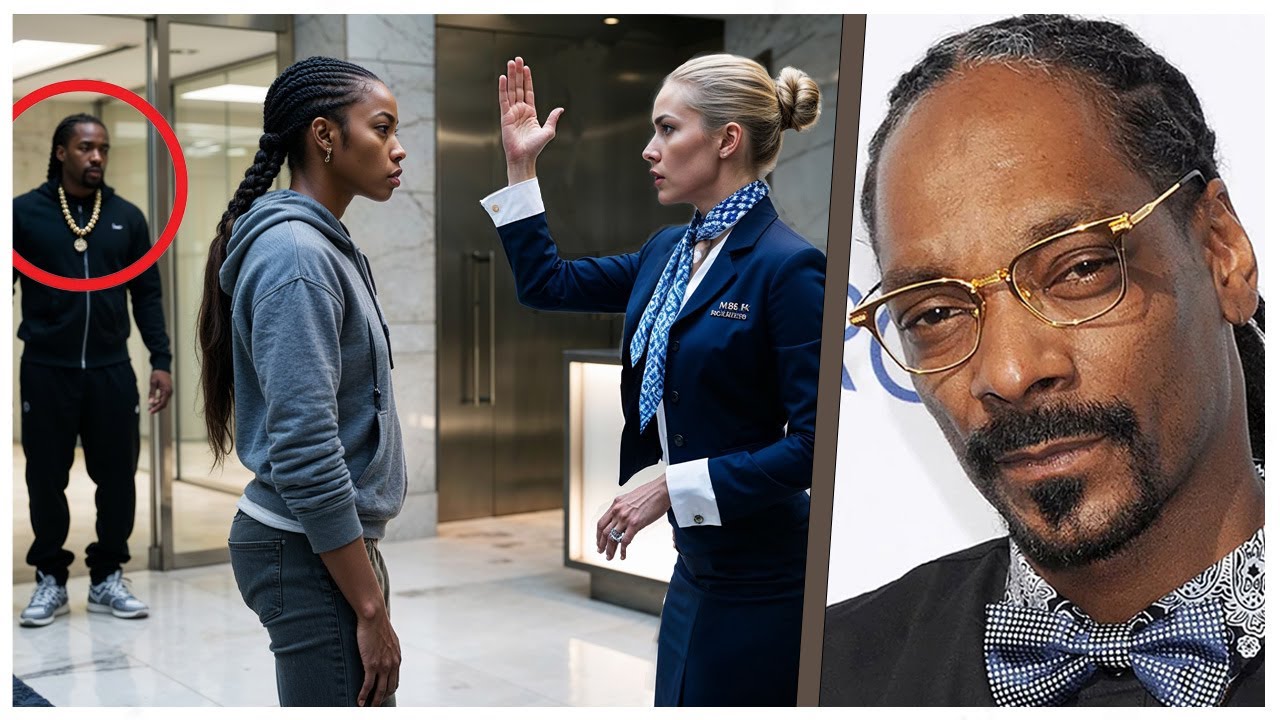In a striking incident that has garnered widespread attention, a bank manager’s misjudgment led to a significant fallout involving Lea O’Neal, the daughter of the renowned rapper Snoop Dogg. The scenario unfolded in a high-end bank where Lea, clad in a casual hoodie and jeans, sought to withdraw $225,000 from her account. Upon her approach to the teller, Emma Carter, the situation rapidly escalated due to a series of dismissive interactions that highlighted broader issues of privilege and bias.
 Lea’s initial request was met with skepticism by Emma, who questioned her account status and implemented strict bank policies requiring additional verification for large transactions. Despite Lea’s insistence that the funds were rightfully hers, Emma’s unwavering stance forced her to escalate the matter to the branch manager, David Rogers. Unfortunately, Rogers, while sympathetic, ultimately reinforced the bank’s policy, leaving Lea frustrated and empty-handed.
Lea’s initial request was met with skepticism by Emma, who questioned her account status and implemented strict bank policies requiring additional verification for large transactions. Despite Lea’s insistence that the funds were rightfully hers, Emma’s unwavering stance forced her to escalate the matter to the branch manager, David Rogers. Unfortunately, Rogers, while sympathetic, ultimately reinforced the bank’s policy, leaving Lea frustrated and empty-handed.
The incident took a more profound turn as Lea reflected on her true purpose for the withdrawal: she aimed to honor a promise to her family by locating a woman named Maria Johnson, who had once been a vital support for her grandmother during tough times. After a long search, Lea discovered Maria’s current state—living in a shelter—an outcome that sharply contrasted with the sacrifices Maria had made for Lea’s family years prior.
Determined to rectify the situation, Lea, alongside her father Calvin, dedicated themselves to not only reconnecting with Maria but also ensuring she received the support she deserved. Their efforts culminated in a powerful reunion, where Maria shared her struggles and vulnerabilities after years of separation. Lea made it clear that their mission was to ensure Maria was no longer managing a life of hardship; rather, she would be embraced and supported by the family she had once aided.
The story gained momentum when Lea publicly addressed the bank’s treatment of her and Maria, advocating for change within the institution. Following their confrontation with bank officials, corrective actions were promised, including a review of customer service protocols and the suspension of the teller involved.
With Maria now integrated into Lea’s family and community, they launched an initiative titled “Echoes of Kindness,” aimed at supporting caregivers and domestic workers who often go unrecognized. The program not only highlighted Maria’s invaluable contributions but also provided resources and a platform for similar stories of sacrifice and resilience.
As months passed, the initiative flourished, culminating in a gala that celebrated the impact of kindness and community support. In a moving speech, Lea acknowledged the profound influence of Maria’s story, emphasizing that true kindness builds legacies that extend beyond individual acts. The event drew attention to the necessity of recognizing those who selflessly help others, reaffirming the notion that even the smallest acts can create ripples of change.
This remarkable narrative serves as a powerful reminder of the importance of compassion and gratitude in our communities, urging individuals to reflect on their own experiences of kindness and the impact they can have on the lives of others. As the story continues to resonate, it prompts a collective call to action, inspiring many to honor the unsung heroes in their own lives.




